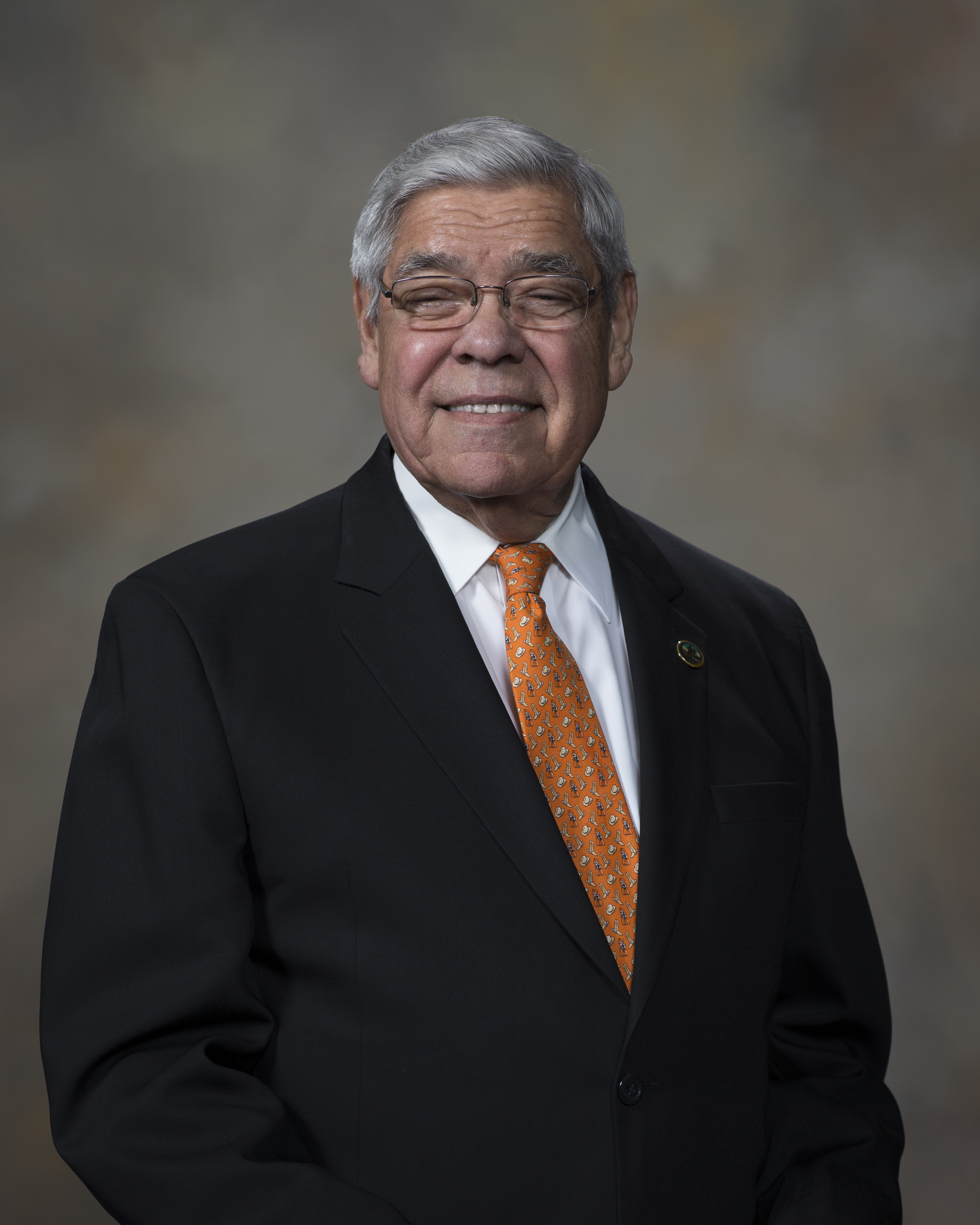A portion of a major interstate highway will soon honor the late Neal McCaleb, a Chickasaw ambassador who dedicated his career to improving transportation infrastructure in the Chickasaw Nation, Oklahoma and the United States.
The interchange of Interstate 35 and East 33rd Street in Edmond, Oklahoma, will be designated as the “Ambassador Neal McCaleb Memorial Interchange” this fall.

McCaleb, Chickasaw Nation Ambassador At-Large to the United States, was also posthumously honored with the Transportation Revenues Used Strictly for Transportation (TRUST) Guardian of Transportation award in 2025. TRUST is a legislative advocacy coalition dedicated to funding and restoring Oklahoma’s surface transportation infrastructure.
McCaleb, who died Jan. 7, spent 19 years serving as president of TRUST and was posthumously presented the TRUST Guardian of Transportation award at the Jan. 28 Transportation Innovation Forum in Oklahoma City. He is the ninth recipient of this award.
McCaleb lived in Edmond, was a civil engineer and spent years in the private sector as an acclaimed highway and bridge designer before spending decades in roles appointed by three U.S. presidents and two Oklahoma governors. McCaleb served as Assistant Secretary for the U.S. Department of the Interior, Indian Affairs and was a powerful advocate for First American tribal sovereignty and economic opportunities.
Former Oklahoma Governor Frank Keating, TRUST co-chairperson, said the award is presented to an individual who exemplifies excellence in all areas of the transportation industry, according to the organization’s news release.
McCaleb invested decades in improving roads, turnpikes and infrastructure throughout Oklahoma for much of his career. Former Oklahoma Governor Henry Bellmon appointed McCaleb Oklahoma’s first secretary of transportation in 1987. During Bellmon’s administration, McCaleb “launched an ambitious road-building program that included reconstruction of Interstate 35 and Broadway Extension and the relocation of Interstate 40 south of downtown,” according to The Oklahoman. McCaleb oversaw construction of the Cherokee Turnpike and the first sections of the Kilpatrick, Creek and Chickasaw turnpikes. McCaleb constructed extensions of the Kilpatrick and H.E. Bailey turnpikes during Keating’s term.
The Ambassador Neal McCaleb Memorial Interchange at I-35 and East 33rd Street in Oklahoma County will be effective Nov. 1, 2025, and the Oklahoma Department of Transportation is expected to place permanent signage to honor McCaleb on the bridge.
McCaleb was inducted into the Chickasaw Hall of Fame in 1999, Oklahoma Hall of Fame in 2014, the Oklahoma State University Hall of Fame and the Oklahoma State University College of Engineering, Architecture and Technology Hall of Fame.
More Stories Like This
Native News Weekly (August 25, 2024): D.C. BriefsUS Presidents in Their Own Words Concerning American Indians
Ethics Complaint Alleges Former Navajo Nation Chief of Staff Accepted Gifts From Contractor
Monday Morning (December 14, 2025): Articles You May Have Missed This Past Weekend
Senators Demand Accountability Amid Reports of ICE Questioning Native Americans
Help us defend tribal sovereignty.
At Native News Online, our mission is rooted in telling the stories that strengthen sovereignty and uplift Indigenous voices — not just at year’s end, but every single day.
Because of your generosity last year, we were able to keep our reporters on the ground in tribal communities, at national gatherings and in the halls of Congress — covering the issues that matter most to Indian Country: sovereignty, culture, education, health and economic opportunity.
That support sustained us through a tough year in 2025. Now, as we look to the year ahead, we need your help right now to ensure warrior journalism remains strong — reporting that defends tribal sovereignty, amplifies Native truth, and holds power accountable.
 The stakes couldn't be higher. Your support keeps Native voices heard, Native stories told and Native sovereignty defended.
The stakes couldn't be higher. Your support keeps Native voices heard, Native stories told and Native sovereignty defended.
Stand with Warrior Journalism today.
Levi Rickert (Potawatomi), Editor & Publisher

